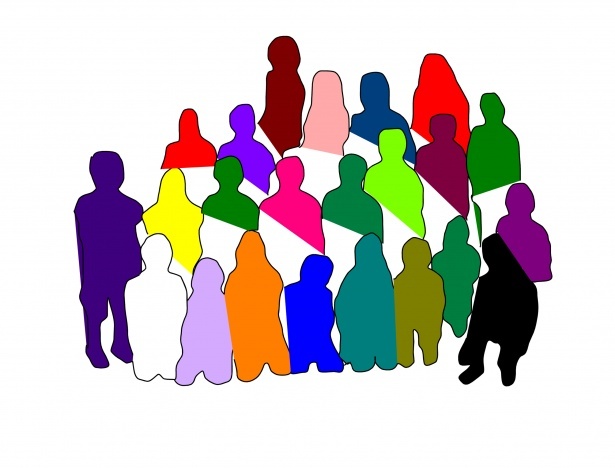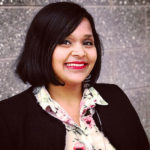The lack of pluralism of economic theories and methodologies has been a problem for a long time, but it became particularly obvious in the wake of the global financial crisis. A decade later, there is still much to be done to open up spaces for alternative economic approaches. In addition to opening up economics to insights from alternative theoretical approaches—such as Keynesian economics, Marxian economics, political economy, and feminist economics—our field must also be more inclusive of scholars from underrepresented groups in order to lay the foundations for an economics that is relevant for our time and firmly grounded in the real world. We believe these two forms of diversity deficits must be tackled together. Below we outline our plan for doing so.
Although we have all been experiencing and observing discrimination against women and underrepresented groups in our own departments, organizations, and at conferences since we entered the field of economics, it was really in the wake of the #MeToo movement’s start and the debates that followed the publication of Alice Wu’s paper on misogyny on the Economics Job Market Rumors forum (EJMR, a site largely populated by our peers, where misogyny really hit close to home), that we found the allies and inspiration to concretely do something about this issue. As feminists and academic activists have started speaking up publicly and there has been a proliferation of news articles, podcasts (e.g. this one by the St. Louis Fed), and research on the topic (for example the work INET researchers have done), an increasing number of academics are becoming aware of the problem and also looking for ways to contribute to a more open and inclusive economics field.
The fact that we are in academic communities which are generally not accepted by the mainstream of our field—we use alternative theoretical approaches and methodologies—makes our challenge regarding diversity unique. While everyone in our communities faces significant barriers because of theoretical approach, only a subset faces discrimination based on identity; that is, discrimination based on identity is happening within already marginalized academic communities. While we consider tackling both of these forms of discrimination to be essential to improve the state and inclusivity of economics, we have wrestled with a few dilemmas. For example: While including more women or minority voices on academic panels is one way to improve inclusivity and diversity, should we prioritize marginalized groups from the mainstream over white men from the Global North with a more critical approach? Our first response to this dilemma has been that the subject matter, approach, and methodology of the academic panel must always be the priority, although it will be harder to find women and minorities within certain sub-fields (but certainly not impossible!). However, if one can only find white men from the Global North to speak about a certain approach or topic, it is worth considering broadening the question being asked in order to bring in more gendered, decolonial, or critical perspectives into the debate.
Considering diversity in this broad sense—both of approach and identity— allows us to see how marginalization has happened in our field in more comprehensive terms. For example, scholars in the Global North in the field of development economics often ask: How can scholars from developing countries be largely missing in the field despite the focus on developing countries, and how can we support more of them? This question might seem oddly misplaced for the many scholars that do work on development issues in the Global South who publish plenty of research in national journals, but who would never submit to top development economics journals, given how theoretically and methodologically narrow the top journals have become over the past four decades (as have top economics journals in general). Academic institutions in India and Brazil, for example, have strong traditions of heterodox scholarship, drawing on theoretical traditions such as structuralism, Keynesianism, and Marxian economics. Additionally, scholars from the Global South tend to have different interests within development economics than people from the North (see e.g. Justin Sandefur on the case of African and non-African scholars studying African development). In order to create a more inclusive and diverse sub-field of development economics, we would therefore suggest that the question be flipped on its head: Instead of asking how we can help people from the Global South be a part of the orthodoxy of the Global North, perhaps we can instead think of ways we can fix the sub-field to make it more inclusive of their scholarship. With this starting point we can start to think about how to tackle both forms of discrimination in a comprehensive manner.
Addressing both of these issues together becomes especially relevant if we want to ensure that we are operating in an open environment for thought and inquiry. However, on a more practical level we find that ensuring that our events are diverse both in terms of theoretical and methodological approaches, as well as the scholars’ background, can be an immense challenge. The proportion of applications to attend and present at events by women, members of underrepresented groups, and scholars from the Global South is generally low. When putting together senior panels or choosing mentors, we face the challenge of relying on our own networks, which are generally not diverse. While we as junior scholars are thirsting for new ideas, innovative solutions, and new perspectives, white, male, and mainstream names keep reappearing. Our two main projects to address these challenges are 1) to construct a Diversity Database, and 2) to construct Diversity Guidelines. But before we go into those initiatives, let us give some background on why we think those particular initiatives will be important to address the issue at hand.
Unpacking the Causes and Consequences of the Diversity Deficits
As the lack of diversity in theory, methodology, and background is complex, we need to unpack it in order to ensure we are addressing it in a constructive manner. The lack of diversity in terms of economists’ race and gender has been well documented: women make up only 19% of economists on average worldwide (among scholars listed on Research Papers in Economics database) and there are disproportionately fewer members of historically underrepresented racial and ethnic minority groups in economics departments, relative both to the overall population and to other academic disciplines (see Bayer and Rouse 2016).
While most mainstream reporting on the issue has been on the “supply side” of the story, focusing only on women’s lack of motivation to study economics (see here for example), there are a range of structural problems within the field itself—as well as within academia at large—that make it difficult to succeed as a woman or a member of a minority group. Let’s take the case of women in academia as an example. At universities, female students are disproportionately affected by sexual misconduct; their recommendation letters are more likely to reinforce negative gender stereotypes; women and minorities are less likely to get a response from potential advisors for a pre-meeting before applying for a PhD; and women will be less likely to get an academic job than their male counterparts (even with higher grades).The few women who do get hired by a university upon graduation will be paid less than men (20% less on average according to a recent UK study), be offered less career mentoring than men, have to do more academic service than men, have teaching evaluations that are more likely to be biased against them, be held to higher publishing standards than men, be less likely to be given credit for their work when they coauthor with men, and they are more likely to face a lengthy peer-review process, even while they will have a harder time getting tenure. To those who think that things will surely improve, albeit incrementally with time: this has unfortunately not been the case. For example, at American universities there has been a decline in women entering the economics field and a decline in the proportion of black students receiving economics degrees since 1995.
These structural barriers are due both to institutional discrimination as well as implicit biases. Considering the obstacles that contribute to the underrepresentation of women and minorities at all stages of the field, it is no wonder that we as organizers have trouble finding out about and reaching competent scholars from underrepresented groups. While the existence of a problem is beyond doubt, the reasons for the persistence of this problem and what can be done about it is much less clear. As a group of committed junior economists, it is imperative that we find ways to develop and promote innovative and bold initiatives to attack this old problem.
We believe economics is only able to answer to real-world issues if it is creative, innovative, and in touch with societal issues, which diversity of perspective can help generate. However, diversity of perspective is somewhat limited if most perspectives are those of people with largely similar experiences. Creating an environment where scholars from a diversity of backgrounds are welcome can lead to a broadening of economics, as marginalized groups are more likely to bring in viewpoints that would otherwise be absent or undervalued. An example of this is that women were far more likely to recognize and engage with problems associated with excluding household work from GDP (see, for example, Nancy Folbre’s work). Another example is that female economists are more likely to consider labor market opportunities unequal than male economists are, given their everyday experience with labor market discrimination (see May et al. 2018). In addition, mainstream economics has been criticized for being Eurocentric and there have been calls to decolonize it—for example at the University of Cape Town and the Azim Premji University—recognizing that knowledge is inevitably marked by power relations and that it is therefore problematic that most economics courses over-represent the ideas of American and European economists (see for example Erik Reinert’s research on the Eurocentric distortion of history of economic thought). Meanwhile, alternatives to Euro-centric traditions of economics have existed for a long time (for instance, the UN’s Economic Commission for Latin America and the Caribbean has focused on the particular reality of Latin American economies since the 1950s). Welcoming more perspectives into the mainstream of the field also encourages us to reconsider science’s “questionable claims of neutrality and universality” (see the European Guidelines for Gender Equality Programmes in Science).
There are several areas for improvement in this regard, but let us take a look at two examples. First, the measures of excellence associated with the existing orthodoxy of economics serves to exclude alternative forms of knowledge creation. For instance, the preponderance of mathematical, ahistorical, and unrealistic approaches in Nobel Memorial Prize winners is striking. This suggests that these standards are based on a narrow understanding of “excellence” (for example, see the “Nobel Factor”). It is also no accident that Nobel Memorial Prize winners have been overwhelmingly white men (of the 79 winners, 76 are white men). Second, the process of selecting which articles that are published in top academic journals is also inherently biased. Not only are studies that do not use the dominant approach or method in the field often rejected, social ties to editors are also important in determining whether a study is published. Diversity and excellence therefore go together, because improving the field of economics requires dismantling of biases related to approach and background, and institutionalizing more open-mindedness and inclusive practices. Diversity thus becomes a precondition for academic rigor.
Our Institutional Approach: Building a Database and Developing Guidelines
The issues of representation in economics are rooted in structural barriers that have been perpetuated over decades. We caution against simplistic approaches aimed at resolving problems by “fixing the women” or other underrepresented groups to make them compatible with dominant approaches and cultures. (This has been identified as a common, though flawed way of addressing diversity by PRAGES 2013 and others). Again, we believe that problems faced by underrepresented groups should, on the contrary, be considered starting points to improve our academic environments and scientific culture in order to make it more welcoming of alternative perspectives and underrepresented groups. Moreover, a diverse composition of scholars can further inspire more members of underrepresented groups to pursue a career in conomics.
We can follow the example of social movements for which the achievement of institutional reforms was critical to their success in furthering diversity. For example, Thomas (2016) finds that the introduction of quotas into institutional leadership positions has achieved more equal representation relatively quickly. Examples of institutional approaches to enhance diversity include creating resources to help organizers find underrepresented voices in the form of databases, guidelines that assist organizers in identifying and addressing inequalities, mandatory quotas based on gender and minority status, and a no-tolerance policy for panels made up of only white men. (In fact, many men are now pledging that they will not be a part of all-male panels, or “manels”). In our communities, we should go beyond just asking where are the women and members of minority groups. We should also identify the structural bias they may be facing, as well as our own personal biases—the ones that make it harder for many of us to recognize excellence and talent when the source is not a member of the dominant paradigm.
Because the exclusion of certain groups is due to particular power structures that privilege certain kinds of scholarship and certain kinds of scholars, we believe developing guidelines is an important part of a broader project of challenging these structures. (Sites that determine what “legitimate knowledge” is include conferences, seminars, journals, curricula, peer review, and hiring processes). As such sites actively reproduce inequalities, they are important to consider when trying to work toward more diverse representation of approaches and perspectives in academia. As individual organizers, guidelines for events, conferences and seminars are a natural starting point when addressing this problem.
The Database: Identifying and Recognizing the Work of Underrepresented Groups
Our decision to construct a Diversity Database of heterodox economists from underrepresented groups was inspired by a call from members of our community as well as by a number of efforts in both economics and in other fields. The database directly calls into question the argument that the lack of diversity in economics is due to a lack of supply of scholars from underrepresented groups.
Some existing resources attempt to tackle the lack of diversity by providing a list of women or members of underrepresented groups who work in a certain field (for example #WomenAlsoKnowStuff and #POCAlsoKnowStuff, both in political science; the Women in Astronomy Database; the database on female neuroscientists; and the Women in Physics database—to name a few). In economics, all the initiatives we came across focus on promoting women in economics, rather than members of other marginalized groups, such as the UK Royal Economic Society and the Italian 100 Esperte database. The latter two are national initiatives; they do not focus on any underrepresented group other than women, and they do not promote alternative economic approaches. Thus, we identified a need for a more encompassing resource for the field of economics that includes scholars from around the globe, from underrepresented minorities in terms of gender and race, while also being a resource especially useful to those who wish to promote work that challenges the dominant paradigm in economics. The Database is currently in a pilot phase.
We face three main challenges related to ensuring that the database is useful. First of all, it is a challenge to define the criteria that identify someone as part of an underrepresented group and as someone who challenges the existing dominant paradigm. The main challenge in defining underrepresentation is that such definitions can always be questioned for being either too general or too restrictive (e.g., should we consider the non-Western world to be underrepresented or just the Global South?). Additionally, a certain criterion can mean different things in different places (for example “underrepresented,” the “Global South,” “Western,” and “heterodox”), leading to potential inconsistencies depending on who is contributing to the database. We also discussed the possibility of including mainstream scholars from underrepresented groups in the database, but decided that this would make the database less useful for the organizers whom the database is meant to serve—namely scholars interested in alternative perspectives on economic issues. While we recognize that scholars from underrepresented groups in the mainstream also face discrimination, they are simply not the target of this project. (Still, we do hope that #WomenAlsoKnowEconomics and #POCAlsoKnowEconomics will soon be created as a resource for those in the mainstream!). We are currently collecting input from fellow economists on our definition of underrepresentation, and we envision that these definitions may change over time. Secondly, it is a challenge to guarantee that the database will reach enough people who can contribute identify experts who fit the agreed upon criteria. We identified two main ways of classifying scholars: first, to have scholars self-select into the database and complete all the information needed about themselves, and second, having third parties submit names of scholars to the database. The challenge with the former approach is that it’s dependent upon us making the database accessible to people we want included. The second approach means we can send out a call for submissions, and have anyone submit scholars they believe are qualified based on public eligibility criteria. In both cases, we would have a team curating the data before publication. While we think the latter option has the potential to ensure that the database is more extensive, some scholars may not be happy about being included in a Diversity Database, even if they are from an underrepresented group. We therefore plan to give all scholars in the database the chance to edit (or even delete) the information about themselves before the Database becomes public. So that it can be a relevant and reliable resource, the database needs to evolve constantly through new contributions and updates. Once the database is made public, we will need to construct a strategy for promoting it and making sure it is employed in a constructive way. Developing diversity guidelines to accompany the database will therefore be important.
Diversity Guidelines: A Tool to Ensure A More Inclusive Economics
We are currently developing a list of best practices that institutions across the field can adapt to improve inclusiveness and diversity. While it can be one tool, we believe it is important to go beyond imposing quotas for women and people of color on panels in order to address the issue of diversity in a more holistic manner. How can this be done? We believe diversity in thought and perspective must be a consideration from the beginning when planning an event. This requires that we address our own biases about what economics is, how it is done, and who does it. A list of best practices can provide organizers of tools they can employ to ensure their events and projects are diverse, and to help individual organizers recognize talent among diverse populations. The recommendations are based on our own experiences as organizers, and on best practices collected from other institutions that have been successful in actively promoting diversity. The best practices list will include tips on how to reach out to underrepresented groups to ensure a diverse applicant pool, how to select papers and presenters with diversity and academic excellence in mind, specific needs that members of underrepresented groups face at conferences (e.g., child care), and how to ensure dynamic discussions at events, including voices of the members of the marginalized groups in attendance.
We will encourage organizations and departments to adopt formal guidelines based on these recommendations to help increase diversity in panels and invited speakers, prevent and deal with sexual harassment, and increase the applications and attendance of underrepresented groups. Economics is lagging behind other academic fields; for example, the European Union has already developed guidelines for science and technology fields to tackle three main objectives: cultural and behavioral change, work-life balance, and early-stage career support.
Guidelines are often met with resistance, both because they are perceived to restrict individual organizers’ freedom, and because any challenge to existing power structures will inevitably be faced with skepticism. However, many organizers in the Young Scholars Initiative and elsewhere have expressed the desire to have guidelines because they have little or no knowledge of how to ensure diversity in events and projects. These guidelines are not meant to restrict freedom, but rather to empower organizers to create better events.
Such guidelines have the potential to prevent the perpetuation of white male and mainstream biases that lead to dominance of these groups in economics. As there is plenty of evidence to suggest that the underrepresentation of women and minorities is due to discrimination, creating spaces for members of these groups does not mean sacrificing academic rigor. But creating this space can be challenging and will require more work from us as organizers. Tackling the issue in a comprehensive way will ideally lead to diverse panels from the outset, so that organizers can avoid having to scramble to avoid “manels” at the last minute, which can run the risk of tokenizing women and underrepresented groups. With guidelines and the database in place, organizers may also be able to avoid having to make lazy excuses about the lack of diversity in their events. (Sam Cook of the Feminist IR Collective identified many typical excuses by organizers of manels, compiled in the form of this bingo card). We believe it’s imperative to have such guidelines— to ensure we broaden our view of economics, and to promote economic thinking that is relevant for our society and in touch with reality.
The Path to Diversity
It may at times feel like we are fighting an uphill battle, as changing a structural, global problem is immensely difficult. In addition, initiatives like these tend to face resistance—and not only from those who benefit from the existing power structure. But change has to start somewhere, and we are inspired by our own minor successes, by influential movements such as #MeToo, and by similar efforts in academia. Given the importance of these initiatives, we hope they can withstand the challenges they are bound to face.
Extensive research shows that the problem of underrepresentation in economics is a structural problem. It requires a structural solution—one that ensures that members of underrepresented groups are heard and that they are able to participate in and help shape activities in their field and attempts to change it. As economists significantly influence public policy and political discourse, fostering an economics discipline that is truly open to diverse theories, methods, and academics is fundamental. Hopefully, we as young scholars can lead the way by creating an environment that welcomes diversity in a comprehensive way: encouraging diversity in both approach and scholarly background.
Thanks to Nancy Folbre, Lee Badgett, Orsola Costantini, Monika Meireles, Glennie Moore, Richard Itaman, Beniamino Callegari, Peter Bent, and Maria Cäcilia Schweinberger for helpful comments on this piece.
Some of the authors of this piece are part of Diversifying and Decolonizing Economics (DEcon), an organization that deals with the challenges described in this text. Should you be interested in joining the efforts and /or provide advice and support, please get in touch at [email protected]












